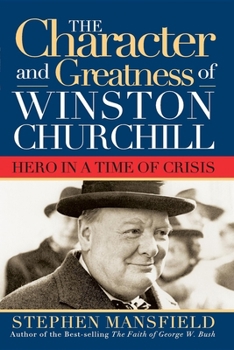The Character And Greatness Of Winston Churchill: Hero In A Time Of Crisis
Select Format
Select Condition 
Book Overview
Winston Churchill was one of the most extraordinary leaders of the twentieth century. What enabled him to stand so steadfastly when all those around him seemed to turn back in fear? What enabled him to inspire whole nations to endure the unendurable and to achieve the unachievable when all those around him had already surrendered all hope? The Character and Greatness of Winston Churchill is a remarkable study of Churchill's leadership skill and answers these questions and more. The result is an account that is no less inspiring today than it was three-quarters of a century ago when the great man's shadow fell large across the world stage. According to Henry Kissinger, Our age finds it difficult to come to grips with Churchill. The political leaders with whom we are familiar generally aspire to be superstars rather than heroes. The distinction is crucial. Superstars strive for approbation; heroes walk alone. Superstars crave consensus; heroes define themselves by the ... future they see it as their task to bring about. Superstars seek success as a technique for eliciting support; heroes pursue success as the outgrowth of their inner values. Winston Churchill was a hero.
Format:Paperback
Language:English
ISBN:1581824130
ISBN13:9781581824131
Release Date:September 2004
Publisher:Cumberland House Publishing
Length:258 Pages
Weight:0.90 lbs.
Dimensions:0.8" x 5.9" x 8.9"
Customer Reviews
1 customer rating | 1 review
Rated 4 starsWork without Faith is Doomed to Failure
By Thriftbooks.com User,
To his credit, Stephen Mansfield illustrates the decisive importance of religious faith in the life of Winston Churchill since his encounter with his influential nanny, Mrs. Elizabeth Everest (pg. 41, 50, 192). The vision of death that Churchill experienced when he was a teenager could also have fortified his faith (pg. 212). Too often, Churchill's faith is downplayed in the abundant literature available about his words...
1Report














